The most difficult language- a rather contradictory concept due to the fact that it is necessary to start from your native one. Naturally, it will be much easier for Russian-speaking people to master Ukrainian or Belarusian than for the British. However, not a single linguist in the world can say which languages are more difficult to master and which are easier. However, there are many factors on the basis of which we can create and offer you a rating. In particular:
- Number of words and sounds;
- Verb forms;
- Spelling features;
There is no point in distributing the Top 10 by numbers, for good reasons. Each of the languages presented is difficult due to the majority opinion. So…
Top 10 most difficult languages of our world
10

Chinese is one of the most complex languages on the planet because it includes a lot of ancient hieroglyphs. Each character must be drawn carefully, taking into account even small deviations in the slopes of different lines. The absence of any squiggle radically changes the meaning of the content in the letter. At the same time, looking at Chinese characters, it is impossible to immediately guess what they are talking about, naturally, for people who are not familiar with the peculiarities of the language. Speaking about spoken language, it is important to note that within the framework of communication it is necessary to observe the rules of tone and homophones. Otherwise, they won’t understand, even if you know the meaning of the word and can form sentences correctly. Pronunciation plays an important role.

First of all, the difficulties of learning the Russian language are due to the fact that stress can fall on different syllables. For untrained people, correct pronunciation takes years. At the same time, due to an incorrectly placed syllable, the meaning of what was said can radically change. This, in turn, is due to the presence of words of the same type, of which there are many in Russian. Speaking about grammar, it is important to study not only complex cases, but also numbers, tenses, and declensions. Commas and other punctuation marks deserve special attention, with the placement of which most even Russian-speaking and literate people have problems.

Japanese, which includes 35 cases, should be added to the list of complex languages of the world. If you have had experience communicating with Hungarians, you have probably noticed that it is imbued with various expressive phraseological units and suffixes. It is quite difficult to perceive the flow of thoughts, if the representative of Hungary is a talkative person, it is almost impossible.
Speaking about the pronunciation of Hungarian words, difficulties arise due to the huge number of consonants. Therefore, even after studying all 35 cases, it will not be possible to speak fluently because of pronunciation!
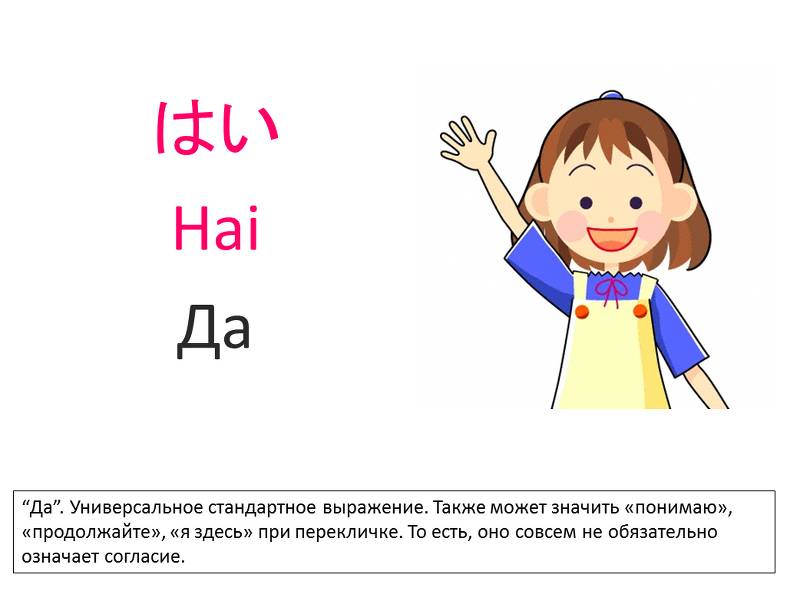
It is unlikely that Japanese is somehow inferior in complexity to the Chinese language. In this case, it is also necessary to study a huge number of diverse hieroglyphs. In this case, there are three different types, or rather writing systems. Students at higher educational institutions are given several times more time to study Japanese than at general education institutions in other countries. Actually, there is nothing surprising about this, because it includes about 15,000 different hieroglyphs. To pass the final exam, you need to know 1,500 different characters.
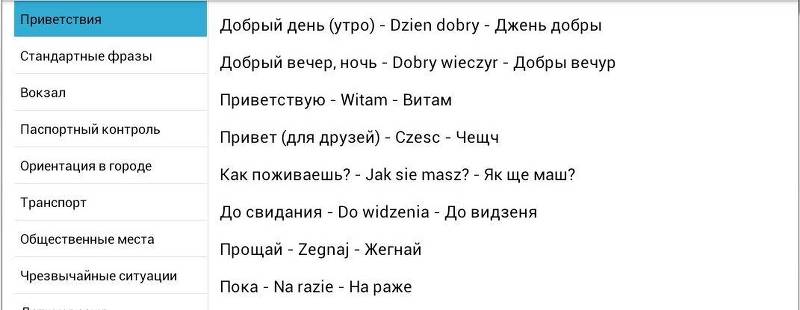
Probably, many residents of the CIS will disagree, but Polish is one of the most difficult languages in the world, which is due to the absence of certain rules, but the presence of many exceptions. It's quite difficult to remember everything. Despite the fact that there are not so many letters in the alphabet - 32, problems still arise even with reading one word, of course, if it traditionally contains incomprehensible sounds. There are also few cases - only 7, but they need to be understood. The spoken language of Poles should be included in a separate niche for the most stubborn people, because the pronunciation of many words is quite difficult.

For many, Basque is an unknown term, for others one of the most difficult languages in the world, for others the personification of history and culture. Let's try to figure out the true purpose and origin.
Currently, many Spaniards and some French speak using Basque. At the same time, the language is in no way connected with any of the ones we are familiar with, and includes 24 cases. The uniqueness lies in the fact that all words are connected through the endings of the same twenty-four cases. It is believed that it was created by the Amazons.
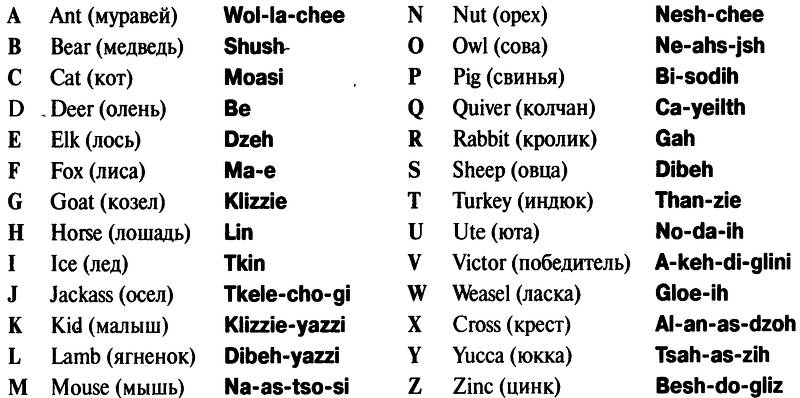
Another complex and not widespread language that is used for communication in some states of America, including Arizona. Based on history, the creators of this species are the Indians, namely 200,000 people. The originality and complexity lie in the unusual pronunciation of consonants. Surprisingly, many Europeans simply cannot physiologically pronounce certain words in Navajo. However, Asians manage to easily master this language, however, this is not necessary, because not many Americans speak it.

Icelandic is quite interesting and at the same time intricate, including words that have long been forgotten. Many experts attribute distant roots to the origin of this language. A truly ancient language that explains the origin of many terms. Today, books and reference books are used to study Icelandic, but this is not enough. It is necessary to have experience in communicating with the indigenous people, otherwise you will have problems pronouncing many words. However, grammar cannot be properly understood through books.
A favorite question of foreign language learners: what is the most difficult language in the world?
Linguists believe that there is no clear answer - it all depends on your native language and a number of other factors. But neurophysiologists are ready to argue: in their opinion, the most difficult languages are those that even the native brain has difficulty perceiving. For example, Chinese and Arabic.
In response to the favorite question of everyone who has encountered learning a foreign language - what is the most difficult language on Earth? - linguists chuckle: it is impossible to give a definite answer. In their opinion, the difficulties depend primarily on the student himself, namely on what dialect is native to him. The rather difficult Russian language will not be so difficult for a Czech or Ukrainian, but a Turk or Japanese may not be able to handle it.
From the point of view of “relatedness”, the Basque language (Euskara) is called one of the most difficult to learn - it is not related to any of the currently known groups of languages, living or dead. Everyone is equal in the face of the difficulties of mastering Euskara. The Guinness Book of Records names the most difficult languages as Chippewa (the dialect of the Ojibwe Indian people in Canada and the USA), Haida (the language of the Haida Indian people living in the northwest of North America), Tabasaran (spoken by one of the indigenous peoples of Dagestan), Eskimo and Chinese .
The most difficult languages in terms of writing are Chinese, Japanese and Korean. They are difficult even for the native speakers themselves. For example, in Japan, school education lasts as long as 12 years, and half of this time is devoted to just two subjects - the native language and mathematics. Even from preschool age, Japanese children are given educational activities to train their memory. To pass the final exams, they need to learn about 1850 hieroglyphs, and to understand a note printed in a newspaper - about 3 thousand.
Scientists at the Institute for the Protection of Languages in Monterey (USA, California) “sorted” all taught languages by degree of difficulty. The division principle was simple and practical: how long it takes students (mostly English-speaking) to achieve a certain level of proficiency in a particular language.
The easiest languages (again, for English speakers) are Afrikaans, Danish, Dutch, French, Haitian Creole, Italian, Norwegian, Portuguese, Romanian, Spanish, Swahili and Swedish. The second most difficult languages were Bulgarian, Dari, Farsi (Persian), German, Modern Greek, Hindi-Urdu, Indonesian and Malay.
Amharic, Bengali, and Burmese are considered even more challenging by American teachers and students, as are Czech, Finnish, Modern Hebrew, Hungarian, Lao, Nepali, Polish, Russian, Serbo-Croatian, Sinhala, Thai, Tamil, Turkish, and Vietnamese. The most difficult languages for English-speaking students were Arabic, Chinese, Japanese and Korean.
It is curious that despite the kinship and obvious similarities in spelling, Hebrew and Arabic belonging to the Semitic group turned out to be at different levels of complexity. This pattern is also true for speakers of both languages. As a study by scientists from the University of Haifa has shown, it is more difficult for Arabs to read texts in their native language than for Jews and the British (or Americans). The reason is simple but surprising: the brain processes the graphic characters of these languages differently.
As you know, the functions of the left and right hemispheres are different. The right one, for example, “specializes” in solving spatial problems and patterned information processing, while the left one is responsible for speech recognition and detailed processing of text messages. In this case, the right hemisphere is responsible for intuition and is able to “understand” metaphors, that is, words and phrases with a veiled meaning, while the left hemisphere is responsible for understanding only the literal meaning.
Israeli scientists analyzed brain activity during reading and word recognition in people whose native language was English, Arabic or Hebrew. Volunteers were offered two experiments. In the first, they were shown words or meaningless combinations of letters in their native language on a screen. The subject had to determine whether a given word made sense, and the researchers recorded the speed and accuracy of the answer.
In the second test, volunteers were shown words simultaneously on the left and right sides of the screen—either on one or both. Thus, the brain was faced with the task of processing the shown symbols with the left or right hemisphere separately.
The resulting picture turned out to be interesting. English-speaking volunteers and those whose native language was Hebrew easily “read” words in one hemisphere independently of the other. But the Arabs had it worse: when reading Arabic, the right hemisphere cannot function without using the resources of the left. Reading Arabic characters uniquely activates the cognitive systems of the brain, scientists conclude. If you want to develop your mind, learn Arabic!
By the way, the same pattern was previously discovered for the Chinese language compared to English. In the study, scientists observed the brain activity of Chinese and English speakers, respectively, while they listened to their native speech. In English-speaking subjects, only the left hemisphere was activated, while in Chinese, both were activated.
The data provided is not specified, but it is likely that the experiment used a dialect of the Chinese language spoken by residents of the island of Taiwan. It is mistakenly called “Mandarin,” although this dialect, spoken by the elite of imperial China, was lost at the beginning of the 20th century. The modern pronunciation of the Taiwanese dialect is based on "Bai Hua", an adverb that is the result of the government's first experimental attempt to create a pan-Chinese dialect.
However, that's not the point. Like many other dialects of the Celestial Empire, this adverb has four semantic tones. It is not surprising that to “process” it, the brain needs to use the resources of both hemispheres. At the same time, paradoxically, the grammar of the Chinese language is one of the easiest in the world: the words there do not change at all.
By the way, according to the testimony of English linguists, their native language is not at all as easy as is commonly believed. English acquired the status of an “international” language largely due to a historical accident, says British philologist Philip Seymour. English grammar is especially difficult to master.
Having compared the speed of learning to read in children in 15 European countries, Seymour found that children from countries with Romance languages (France, Italy) achieve the fastest progress, while reading in the languages of the Germanic group (German, English) is much more difficult.
This may be why in English-speaking countries there are more children suffering from dyslexia - difficulty understanding written text. The complexity of their native language lies in the fact that the same letters in different combinations are pronounced differently.
First, let's determine which languages are popular today.
Of course, English, which is unanimously considered the language of international communication.
Then Spanish, because it is spoken not only in Spain, but also in most countries of South America, and it is also one of the official languages of the United States.
We must not forget about French, and not only because it is the official language of Canada, as well as English, as well as the main language of many African countries, but also because this beautiful and melodic language has many fans who study it just like that, “for the love of art."
German, despite the limited territory of application (officially - Germany and Austria), still does not give up its position and has a huge army of those who study or own it, apparently due to the fact that Germany has had a huge historical and cultural influence on other countries, and continues to flourish in economically and politically.
Let's not forget about our own Russian language, after all, it is spoken not only in the largest country in the world, but also in the former Soviet republics, as well as by emigrants who have left this very country and republics in all other developed countries. Let's include it in our list also in order to compare its complexity with other popular languages.
Now let's face it and admit that actually the first person on this list should be Chinese, which is statistically the most widespread language in the world, because it is spoken by 1.213 billion people, which, you agree, is a lot.
First, for the sake of fairness, we wanted to add the national language of India to our list - Hindi, which takes an honorable 3rd place in the list of the most common languages, after Chinese and English. But, unfortunately, it is of little interest to anyone outside of Hindustan. This situation arose due to the active role of the English language, which in the century before last became lingua franca- the language of international communication. That is, in India you can communicate freely in English, and you will always be understood.
Therefore, we include in our analysis Arabic, spoken in many countries in the Middle East, North Africa, South and Central America.
So, let's start analyzing the complexity English, Spanish, French, German, Russian, Chinese and Arabic. Let’s immediately make a reservation that we will analyze them from the position of a Russian-speaking person, and we will take into account data about the Russian language itself from the position of foreigners studying it.
1. The simplest of the above is considered... English language ! There are no genders, cases, or word agreements; its grammar is quite simple. The words in it are short, as a rule, the verb and noun are denoted by the same word, verbs acquire a suffix only in the third person. Native speakers are calm about the mistakes of foreigners, because many people learn English as a second language. It is in English that 80% of the world's information is now stored, the bulk of technical and scientific literature is also printed in it, in addition, English is considered the language of the Internet.For those who are just starting to learn English, it is important to understand that it is a language of structures, a language with a fixed word order. You just need to remember that the structure of each sentence is the same: “subject + predicate + minor members”, and in that order. You should also remember that every sentence must have verb. Well articles of course - they are the ones that cause the greatest difficulties for Russian speakers. In general, you can learn English quite quickly for everyday communication, but to master it... it takes more than one year. As they say, English is easy to learn, but hard to master.
Read more about the English language.
2. In second place you can put Spanish. Its vocabulary is similar to English as they share the same roots - Latin. Its spelling is simple - as it is written, so it is heard. The word order here is not fixed as rigidly as in English; auxiliary verbs are not needed. In addition, this language is brighter, richer and more interesting in terms of word formation - for example, diminutive suffixes are actively used (which simply do not exist in English). The tenses are at the same level of difficulty as in English, but the past is a bit messed up. In general, for a Russian person Spanish is easily perceived by ear, much easier than English, this is due to similar phonetics. Read more about the Spanish language.
3. French is also not very complicated, many of its words are similar to English and Russian, which is due to history. French is widely used and it is quite easy to find opportunities to learn and speak it.The hardest thing about French is pronunciation and reading. It is difficult to get used to the fact that several letters in a word may not be read at all, and those that are read may be pronounced differently from how they are written. In addition, the pronunciation features of abbreviated forms are related and studied in parallel with basic grammar.
What about grammar? Verbs are conjugated by persons (there are both you and you) in different tenses and moods. In the traditional grammar system, there are 3 present tenses, 3 future tenses, 6 past tenses, 2 types of imperative mood, 2 types of conditional mood and 4 types of subjunctive mood. French is also distinguished by the abundant use of negative and restrictive phrases and the frequent use of the infinitive as a subject.
Despite its apparent complexity, the French language has many fans, even fans, and learning it is actually not that difficult. You can read more about French.
4. If you love long words and capitalized nouns - your language German. German is easier for people with a technical mind, it is quite schematic and predictable, its sentences are similar to electrical circuit, where each subsequent link is connected to the previous one. It also looks like a spreading tree with many branches - rules and exceptions to them. You definitely can’t call it a poor or boring language!German is difficult in its grammar, it has 4 cases and three genders of nouns, which, of course, are in no way related to the real qualities of the objects they denote (all articles are declined). According to Mark Twain, “In German a girl has no gender, although a turnip, say, has one.”
The German language also has a rather complex syntax, and the words in it can be very long, because... are formed by combining different words and adding suffixes and prefixes to them.
Despite the fact that its sound is considered a rough language, many people hear its lyricism and see its ornamental beauty. Although, let’s be honest: teaching him is not an easy task. As I said Richard Porson, "Life is too short to learn German." But, of course, this is an exaggeration. Read more about the German language.
5. Russian- this is certainly a rather difficult language. Even the Russians themselves have to learn it all their lives, and at school only a few get an “excellent” rating in it. Russian has 6 cases, while German has only 4, in general its grammar is very confusing, with many exceptions, exceptions to exceptions; The word order is not fixed, there are no articles, and the meaning is often conveyed by intonation.Punctuation in Russian is quite confusing, but logical, but contains many rules.
It is difficult for foreigners to perceive Russian by ear due to its excellent phonetics - a large number of hissing and whistling sounds and a rolling “r”. Most people in the world consider Russian to be even more difficult than Chinese. Many people give up learning “tourist set” immediately after they try to pronounce "Hello" - Hello. Combination "hello" And "vstv" in one word is unpronounceable for most people.
Russian is a very emotional language. Its lexical content is rich and flexible - indeed, in no other language will you find so many diminutive and abusive words! For example: girl - girly - girl - little girl - wench - lass - damsel, and all of these are derivatives from one root. Compare English: girl - littlegirl, and that's it!
Much in Russian is not subject to logical comprehension, since it conveys mood and emotion.
For example:
- Do you want some tea?
- No, probably not.
So think about it, foreigners, whether we want tea or not.
6. Arabic no one will call it easy, but let's figure out how difficult it is. The first thing a beginner encounters and what scares him is the Arabic script, the Arabic script. However, the fear of the Arabic script is false, since it has only 28 letters that are connected to each other in print and writing. However, many letters have four different spellings - depending on their position in the word. Another difficulty (although essentially just a lack of habit) is the direction of writing from right to left. But stress in Arabic words is placed very simply and logically without any exceptions.So what's so complicated about it, you ask? Firstly, the pronunciation of Arabic sounds corresponding to a particular letter is quite difficult for both Slavs and Europeans. This mainly concerns the reading of vowels, since it is believed that they are not there, but there are "vocalization". Arabic has 28 consonants and only 3 vowels - a, and, y- each of them can be short or long. But vowels are not reflected in writing. In addition, there are sounds there that have no equivalent in Russian. At the same time, words are read the same way as they are written.
Arabic grammar is also not encouraging - the verb usually comes before the predicate and the object. A verb has three numbers, so nouns and verbs must be learned in singular, dual and plural. The present tense has 13 forms. The noun has three cases and two genders.
You also need to take into account the fact that Arabic is the language of a completely different culture (for Russian speakers). Studying any European language, we will come across a lot of words that are familiar to us. And when studying Arabic, we will no longer come across a single familiar word.
Another problem with the Arabic language is that it has many dialects. Classical Arabic, the language of the Koran, was originally a dialect of Mecca (the territory of Saudi Arabia), and its adapted form, which is called “Modern Standard Arabic,” is now used in literature, newspapers, television and radio, in the mosque, as well as in the communication of educated people. Arabs from different countries. But the differences between local dialects are sometimes so huge that a representative of Morocco, for example, may not be understood by an Iraqi, and vice versa, although formally both speak Arabic.
7. There is an opinion that Chinese not that complicated at all. In fact, only its grammar is simple and even primitive - there are no endings, no suffixes, no prefixes.What makes Chinese really difficult is the mass of synonyms and the terrible interchangeability of words, as well as the hieroglyphs themselves. Many hieroglyphs are often synonyms, and the synonyms themselves require learning more and more new hieroglyphs, and often completely different words are read identically.
At the same time, there are no special problems when reading hieroglyphs; they arise in oral speech, when the brain has to deal with a mass of associations and words that sound the same. Therefore, the Chinese themselves speak in short phrases, sometimes repeating everything they said. And for a native speaker of the Slavic group, even just saying one Chinese sentence with correct, understandable pronunciation is already a great achievement, for which you need to work and work.
As for the simplicity of Chinese grammar, it is more than offset not only by complex writing, but also by extremely complex pronunciation with 4 tones, extensive homonymy, homophony, and homography. Thus, Chinese is in last place on our list, and you can read more about it.
So, we looked at 7 popular languages today and ranked them by degree of difficulty. But which language will be easier or more difficult for you is a separate question that depends on many factors. If, for example, you already taught English at school, like most Russians, then you will find it easier to speak related languages - German, Spanish, French.
if you have strong motivation, for example, the intention to move to another country (read about emigration), then of course the language you are learning will be easier for you - your emotional mood, interest in the life of the country, the press, television, the desire to watch films and TV shows in the language will affect you.
Find out which language is almost impossible to learn.
Photo 1 of 9:© Depositphotos
There are about 6,000 different languages in the world. Some of them are easy to learn, some are more difficult. And there are those that for foreigners are more like a cryptographic code than a language of communication. These are languages such as:
Tuyuka
The Tuyuca language is spoken by Indians living in the Amazon basin. The Tuyuka language has special verb endings that let the listener understand how the speaker knows what he is talking about. And there is no way to do without them. For example, when you say something like “a woman is washing clothes,” you must add: “I know because I saw it myself.” In addition, the Tuyuca language has between 50 and 140 classes of nouns. The Tuyuka language is agglutinative, which means that one word can mean an entire phrase.

Abkhazian
The Abkhaz language has only three vowel sounds - a, ы, aa. The remaining vowels, denoted in writing by separate letters - e, o, i, u, are obtained from a combination of other vowels and consonants. The Abkhaz language compensates for its vocal poverty with an abundance of consonants: in the literary language there are 58 of them, and in the Bzyb dialect as many as 67. By the way, the Abkhaz alphabet based on the Cyrillic alphabet was created in 1862, and three years later the Abkhaz primer was released. The Abkhazian manner of starting a word with the letter “a” is often laughed at, although this prefix, or in common parlance a prefix, performs the same function in the Abkhaz language as the definite article in English. It is placed before all nouns, and according to the rules of the Abkhaz language, it is added to borrowed words too.

Khoisan
Some Khoisan languages are endangered, and many have already become extinct. Only 370 thousand people on the planet speak these very unusual dialects. The fact is that in the languages spoken in southern Africa around the Kalahari Desert, there are so-called clicks or clicking consonants. The term “Khoisan” itself was constructed from words in the Khoisan Nama language: “Khoi” in it means person, and “San” means “Bushman”. Initially, this term was used to designate the physical-racial type of these peoples, and only much later, the American linguist Joseph Greenberg applied the term to the macrofamily of languages that use clicking sounds. Recently, genetic scientists confirmed the ancient isolation of the Khoisan people from the rest of humanity and discovered that the tribes living north and south of the Kalahari have been isolated from each other for at least 30 thousand years.

Finnish
Anyone who has tried to learn all fifteen Finnish cases and more than a hundred conjugations and finite verb forms will agree that Finnish is a difficult language. Finns inflect a verb like a noun, and there are also oddities of this language - alternating consonants, an abundance of suffixes and mysterious postpositions. But the Finnish language also has its advantages - words are heard as well as written and read in the same way - there are no unpronounceable letters here. The stress always falls on the first syllable, and the category of gender is completely absent. Finnish has several past tenses, but no future tense at all.

Chinese
The latest Chinese dictionary, Zhonghua Zihai, compiled in 1994, contains 85,568 characters. True, it would be more correct to speak not about the Chinese language, but about the Chinese branch of languages, which unites many dialects. By the way, not all of the more than 85 thousand are actively used in modern Chinese: most of them are found only in the commemorative literature of various Chinese dynasties and are no longer used in practice. For example, the hieroglyph "se", meaning "chatty", which consists of 64 strokes. If at school we taught a few dozen letters, then a resident of the Middle Kingdom, just to start reading, must memorize at least 1,500 hieroglyphs. But you also have to learn how to draw each hieroglyph.

Chippewa
The champion in verb forms is, of course, the language of the American Indians Chippewa, or, as they are more often called, Ojibwe. Linguists call the Chippewa language the southwestern dialect of the Ojibway language itself. This language has as many as 6 thousand verb forms. But even with all the complexities of this language, you and I know a couple of words from it: these are, for example, the words “wigwam” or “totem”. Henry Longfellow's epic poem, The Song of Hiawatha, is based on the legends of the Ojibwe people. The American classic used myths, place names and even words from the Ojibwe language, but like any outsider he was not able to take everything into account. So you can see the mistake right on the cover: the legendary Ojibwe hero is called Nanobozho, because Hiawatha is a character from Iroquois mythology.

Eskimo
If you are familiar with the word "igloo", which means an Eskimo winter home built from blocks of snow or ice, then you know the word from the Eskimo language. The Guinness Book of Records claims that the Eskimo language has 63 present tense forms, and simple nouns in it have 252 inflections. True, linguists do not distinguish the Eskimo language. However, all Eskimo languages are extremely complex: for example, up to 12 grammatical categories can be expressed in one verb form using suffixes. Speakers of this language think figuratively: the word “Internet” in it is expressed by the term “ikiaqqivik”, which means “journey through layers.”

Navajo
The idea of using complex languages to transmit encrypted messages came to the Americans back in World War I, when Choctaw Indians served in the US Army. During World War II, they took advantage of this experience and, in addition to the complex Basque language, began to transmit messages in the Navajo language. There were plenty of native speakers of this complex language who also spoke English, but there was no writing in the Navajo language, which means there were no dictionaries at all. “Windtalkers,” that is, “speakers with the wind,” as the Navajo code talkers called themselves, were even forced to invent new words. For example, the plane was called “ne-ahs-ya”, that is, “owl”, the submarine was called “besh-lo”, literally “iron fish”. And the Navajo signalmen called Hitler “posa-tai-wo,” that is, “crazy white man.” In addition to vowels and consonants, this language has four more tones - high, low, rising and falling. Particularly complex in the Navajo language are verb forms, which consist of a stem to which are added derivational and inflectional prefixes.

Basque
The Basque language is unique and unlike anything else. It preserves very ancient concepts. For example, the word “knife” literally means “a stone that cuts,” and “ceiling” means “the roof of a cave.” Native speakers call their language Euskara, and we call it the Basque language. It is a so-called isolated language: it does not belong to any known language family. Now it is spoken and written by approximately 700 thousand people, living mostly on a 50-kilometer-wide coastal strip from the Spanish city of Bilbao to the city of Bayonne in France. The Basque language is classified as an agglutinative language - this is what linguists call languages that use suffixes and prefixes to form new words, each of them carrying only one meaning. The Basque language dictionary contains about half a million words - approximately the same as ours. This is explained by the large number of synonyms and dialect variants. The obscurity and complexity of the Basque language played a positive role: during the Second World War, it was used by radio operators in the US Army.

Learning foreign languages is an important, exciting, but difficult activity. Nevertheless, some people turn it into a hobby, practically “collecting” mastered foreign languages. Why do they do this, what difficulties accompany this process, as well as what is the rating of the most difficult and difficult languages to learn in the world - you will learn all this from the article.
Why do people love to learn languages?
It would seem that this is such a difficult, time-consuming activity that requires enormous motivation and concentration. Why do people voluntarily agree to learn a foreign language, and more than one, and often do it with pleasure? And there are those who do not stop at one or two languages, but increase the number of languages mastered to four, five or more. What is so exciting and necessary about this?
In general, the motives that motivate people to learn languages can be divided into two categories:
- for pleasure;
- to achieve the goal.
The first group includes a passion for foreign languages as a hobby, as well as the purposeful study of the culture of another country. Knowing the language, you can better understand the mentality of the people, their values and humor.
The second group includes the study of foreign languages for the purpose of emigration, improving professional status, communication and travel.
In general, we can say that people learn other languages for pleasure and benefit. Now let's talk about the difficulties that accompany this activity.
What is the difficulty of learning foreign languages?
For each case, the difficulties will be different. Let's list the most significant ones.
1.There is a big difference between your native language and a foreign one. So each person has their own hardest languages to learn. For example, most Dutch people find it easier to learn German or English than Russian or Serbian. Not to mention the languages of the peoples of Africa or Oceania. By the way, speakers of Slavic languages will have no less problems with the latter. But the reason is still the same - significant differences
2.Lack of a unified grammar. For example, it will not be easy for a native English speaker to master cases, conjugations and other forms in German, French, Estonian, Russian, etc. The difficulty of learning a language is also affected by the presence of exceptions and variations in it, which make it difficult to understand the general logic of the language.

3.Selected aspects: pronunciation, writing. For example, if the oral side of the Chinese language is not difficult to master, then you will have to tinker with the written side, namely, learn a huge number of hieroglyphs. The same can be said about the Japanese language, where there are three forms of writing, as well as various speech cliches, similar in meaning, but used in different situations. The English language, despite the simplicity of its grammatical structure, has complicated reading rules with many exceptions.
A few words about the great and mighty
Almost all of us have heard this maxim: “The Russian language is the most difficult.” And we, as schoolchildren, were proud that he was our family. But is it true that Russian is the most difficult language to learn?
As can be understood from the above, the complexity depends on a number of circumstances, among which the most prominent are the individual characteristics of the student. In other words, the Russian language is difficult to master for those people whose native language differs significantly in grammatical structure, pronunciation and writing.
The most difficult of the European and Slavic
The languages of the peoples of the Earth are so different from each other and have their own characteristics that it is possible to determine the most complex language in the world only within one or another large group. Another important factor is the individuality of the student - his abilities and native language.
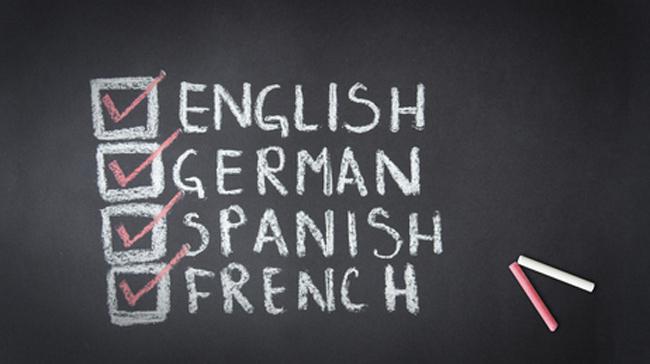
Thus, among the European and Slavic languages the most difficult are considered to be:
- Estonian, Polish, Hungarian, Icelandic - in terms of grammar;
- Greek, Russian - in terms of graphics and spelling.
- English, Polish, Hungarian, Georgian - in terms of pronunciation.
The most difficult of the Eastern and Asian
If your native language is Slavic or European, then you will experience the most difficulties in learning Arabic, Turkish, Chinese, Sanskrit, Hindi, Japanese, and Korean. And all because their writing, pronunciation or grammatical structure are significantly different from the one to which other peoples are accustomed.

Arabic may not be the most difficult language in the world, but it has nevertheless been found that its writing requires more effort than reading Latin, Cyrillic, or even hieroglyphs. A a large number of hieroglyphic icons - 87 thousand - the main obstacle in learning Chinese. The other languages listed are characterized by difficulties in pronunciation and large quantity grammatical classes: genders, cases, persons, conjugations, tense forms, etc.
Rating of the most difficult languages
As you can already understand, compiling such a list is not an easy task. After all, the difficulty of learning a particular language for a foreigner lies in what language this person has as his native language, as well as what languages he already speaks and what his individual abilities are.
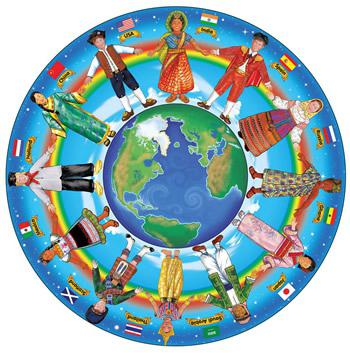
1. The most difficult language in the world is Basque, spoken by people living in southwestern France and northern Spain. It is characterized by an extremely complex grammatical structure and low prevalence, which made it possible to use the Basque language for encryption during the Second World War.
2. Tuyuca is the language of the small peoples of Brazil and Colombia. Its grammatical structure is quite complex, and the same can be said about spelling.
3. The Eskimo language has 252 noun endings, as well as 63 present tense forms of verbs. This is quite enough to make you suffer from studying it.
4. The language of the African Suaya tribe has no genders, verbs or nouns, but its grammar contains 15 forms of past and future tenses. In the lexicon you can find 108 different words for the color yellow, but not a single one for water.
5. The language of the Nivkhs (a small people living on Northern Sakhalin) is notable for its special counting system, which changes depending on what items are being counted. There are a total of 26 methods that anyone who decides to learn this rare language will have to master.
6. The Chippewa Indian Tribe boasts a native language containing 6,000 verb forms - a world record.
7. The Abaza language (belongs to the languages of the peoples of the Caucasus, is one of the official languages in Karachay-Cherkessia) is distinguished by such complex phonetics that it is almost impossible for a person for whom it is not native to master it.
What's the best way to learn any language?
Even the most difficult language in the world can be mastered if you approach this process purposefully and consciously. Create a lesson plan that includes goals for the day, week, month, and then follow it. It will take a lot of patience and constant practice.
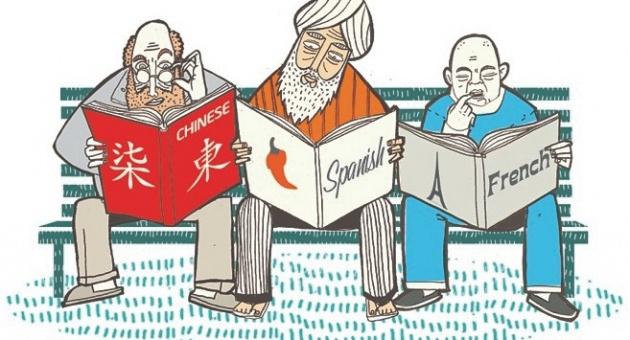
In the case of common European and Slavic languages, watching videos with foreign subtitles helps a lot: this way you will not only hear pronunciation samples, but also learn to understand speech. Another valuable source when learning languages is communication in them.
Conclusion
Surely you have already realized that there is no one answer to the question of which foreign language is the most difficult. Each has its own nuances: be it pronunciation, graphic system, rules of grammar and spelling, lexical features, and so on. Whether a language is complex or simple - the answer often lies in the personality of the person studying it.
